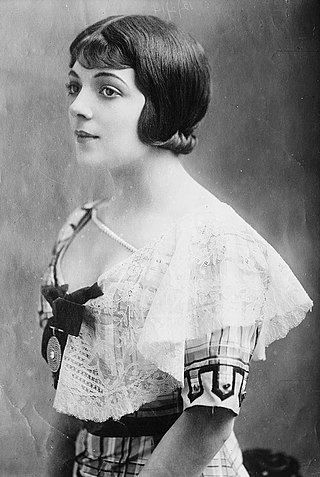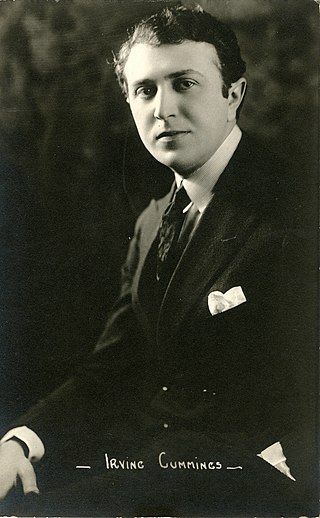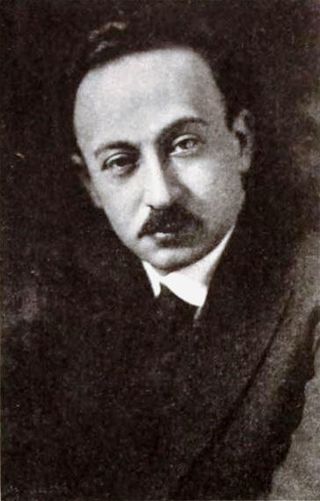A slave is an individual held in forced servitude.

Henry Byron Warner was an English film and theatre actor. He was popular during the silent era and played Jesus Christ in The King of Kings. In later years, he successfully moved into supporting roles and appeared in numerous films directed by Frank Capra. Warner's most recognizable role to modern audiences is Mr. Gower in the perennially shown film It's a Wonderful Life, directed by Capra. He appeared in the original 1937 version of Lost Horizon as Chang, for which he was nominated for the Academy Award for Best Supporting Actor.

Herbert Brenon was an Irish-born U.S. film director, actor and screenwriter during the era of silent films through the 1930s.

Charles K. French was an American film actor, screenwriter and director who appeared in more than 240 films between 1909 and 1945.
The Rules of the Game is a 1939 French film, directed by Jean Renoir.

Lois Wilson was an American actress who worked during the silent film era. She also directed two short films and was a scenario writer.

George E. Marshall was an American actor, screenwriter, producer, film and television director, active through the first six decades of film history.

Irène Bordoni was a Franco-American actress and singer.

Irving Caminsky was an American movie actor and director.

George Fitzmaurice was a French-born film director and producer.

Violet Mersereau was an American stage and film actress. Over the course of her screen career, Mersereau appeared in over 100 short and silent film features.

Harry Beaumont was an American film director, actor, and screenwriter. He worked for a variety of production companies including Fox, Goldwyn, Metro, Warner Brothers, and Metro-Goldwyn-Mayer.

Strange Interlude is an experimental play in nine acts by American playwright Eugene O'Neill. O'Neill began work on it as early as 1923 and developed its scenario in 1925; he wrote the play between May 1926 and the summer of 1927, and completed its text for publication in January 1928, during the final rehearsals for its premiere performance. Strange Interlude opened on Broadway on January 30, 1928, and won the Pulitzer Prize for Drama. Lynn Fontanne originated the central role of Nina Leeds on Broadway. It was also produced in London at the Lyric Theatre in 1931. It was included in Burns Mantle's The Best Plays of 1927-1928. Because of its length, around five hours if uncut, the play has sometimes been produced with a dinner break or on consecutive evenings. The play's themes – a woman's sexual affairs, mental illness, abortion, and deception over paternity – were very controversial for the 1920s. It was censored or banned in many cities outside New York.

Jerome Storm was an American film director, actor, and writer. He acted in 48 films between 1914 and 1941 and directed 47 films between 1918 and 1932. He was born in Denver, Colorado, and died in Desert Hot Springs, California.

Hugo Riesenfeld was an Austrian-American composer. As a film director, he began to write his own orchestral compositions for silent films in 1917, and co-created modern production techniques where film scoring serves an integral part of the action. Riesenfeld composed about 100 film scores in his career.

Arthur Henry Rosson was an English film director. From 1917 to 1948, Rosson directed 61 feature films. He also worked on many major films as a second unit director until 1960, particularly for Cecil B. DeMille.
A gigolo is a male escort or social companion who is supported by a person in a continuing relationship, often living in her residence or having to be present at her beck and call.

Robert North was an American vaudeville performer who became a success as a stand-up comedian. Later he became a prolific motion picture producer.
The Weaker Sex is a French comedy play which was first staged in 1929. It mocks the various different schemes of fortune-hunting men to attract wealthy wives.

The Weaker Sex is a 1933 French comedy film directed by Robert Siodmak and starring Mireille Balin, Victor Boucher and Pierre Brasseur. It was based on a 1929 stage farce of the same name by Édouard Bourdet.
This page is based on this
Wikipedia article Text is available under the
CC BY-SA 4.0 license; additional terms may apply.
Images, videos and audio are available under their respective licenses.















